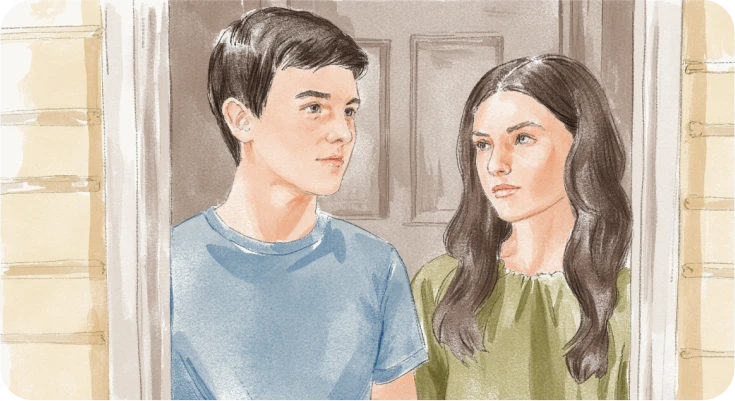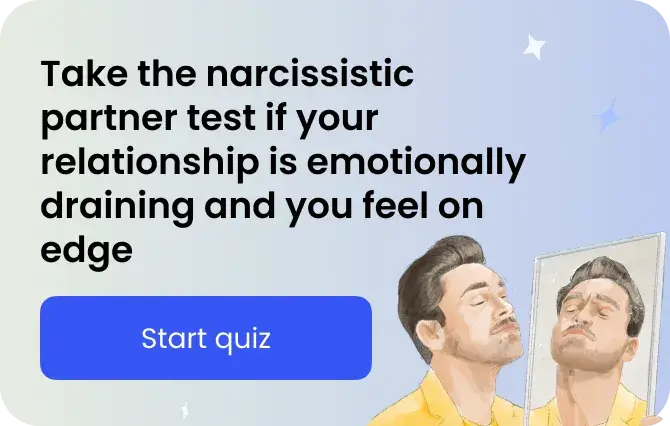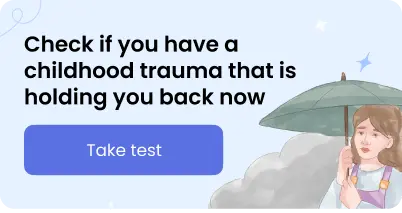People are social animals, and we naturally form bonds with other people. Some people get too attached to someone too quickly, possibly telling them more than they intended in the beginning. Right after, you feel guilty about intense emotions and wonder, “Why am I so easily attached?”
Let’s explore the psychology of getting attached so easily and how you can spot the signs you get attached too easily in yourself.
Check if you might be attached to narcissists.
What’s the meaning of “emotionally attached”
Emotional attachment is a feeling of closeness and security with someone. It can be based on shared experiences, mutual respect and support, or simply enjoying each other’s company. It’s more than simply adoring someone.
Emotional attachment can also be a component of love. It’s about all types of relationships, including potential partners, family relationships, friendships, coworker relationships, and even relationships with pets.
We learn and experience emotional attachment from early childhood. We rely on caregivers to meet our needs for food, comfort, and safety. When these needs are met consistently, it builds a foundation of trust and security and leads to emotional attachment. That’s the basis for a secure attachment style.
A secure attachment style is when you’re comfortable being close to others but can also be independent. But sometimes, early experiences weren’t so great. Adverse childhood events may lead to childhood trauma and attachment issues, leaving you wondering why you get so easily attached and making relationships feel more challenging later on.
7 signs you get attached too easily
When people are emotionally attached, they feel safe, warm, and want to be with them for a long time. But when it happens too quickly, it can feel like giving a lot emotionally (sharing deep personal thoughts or feelings) before you’ve built enough trust or understanding with the other person.
Here are seven signs that you attached too soon.
- Early in the relationship, before you get to know the other person well, you experience a strong emotional reaction, whether it’s excitement, worry, or anxiety.
- You feel anxious about what each message or conversation means or how it might be interpreted.
- Even though you’re not officially dating them, you feel envious or angry when they hang out with or talk to others.
- Even when the other person doesn’t ask you to, you start rearranging your schedule, altering your plans, or prioritizing their needs over your own.
- You find yourself looking for confirmation or reassurance that the other person likes you or that things are going well.
- You imagine your future together and plan scenarios (even if they are far-fetched) without knowing if they share the same vision.
- You ignore red flags and signs that someone might not be the right person.
Are you a person who gets attached easily?
Why do I get attached so easily? Psychology and 10 causes to explore
If you’re someone who thrives on connections, you might naturally seek that bond as soon as you feel even a hint of compatibility. However, a too quick or unhealthy emotional attachment to someone can stem from various emotional factors: from insecure attachment style to emophilia.
So, if you’ve ever wondered if you get attached so easily, the answers you’ve been searching for are here.
1. A need for comfort or stability
If you’ve experienced a lot of change recently, unpredictability, or instability in your life (moving a lot or a history of problematic relationships), naturally, you might cling to any connections that feel stable.
Sometimes, getting attached quickly also can be a way to distract from personal problems or inner turmoil. A new relationship might feel like a temporary escape from emotional challenges or uncertainties in your life.
2. A desire for any emotional connection, just not to be alone
Loneliness or fear of feeling lonely can drive us to form bonds that aren’t fully formed or unhealthy relationships. Because of this fear, we may become attached easily to potential partners in an attempt to find security and satisfy unmet emotional needs.
3. It’s oxytocin
The “bonding hormone,” oxytocin, has the potential to develop a strong sense of intimacy and trust too soon. During sex, especially when orgasm is involved, the brain releases large amounts of oxytocin (in both women and men), which can create a false sense of strong
emotional connection, even if you’ve just met, according to the study. [1] This is sometimes called “post-coital bonding” and can make people feel much closer to their partner than the actual level of emotional intimacy or compatibility would justify.
Medical News Today writer Markus MacGill says women are more likely to feel an emotional bond with their partner because they have higher levels of oxytocin than men.
4. Childhood attachment styles
Our attachment style is shaped in childhood and can significantly influence our romantic relationships. If you’ve been emotionally neglected, abandoned, or in unstable relationships in the past, you may be too attached too fast to people because you’re trying to heal or make up for what happened in other relationships. We may unconsciously recreate familiar patterns from our past, even if they’re unhealthy, in an attempt to gain control, as research says. [2]
People with an anxious attachment style, for example, tend to crave closeness and get easily attached, sometimes because of childhood experiences or past relationships that involved inconsistency or abandonment. Yet, it’s vital to remember that your attachment style can be fixed.
Or if you have a disorganized attachment style, you might initially feel incredibly emotionally attached to someone and quickly profess your feelings, only to pull away later and create distance when things get serious.
Discover the patterns from the past that may affect how you form relationships today by taking the Childhood Trauma Test.
5. Low self-esteem
Another important factor in a quick or unhealthy emotional attachment may be self-doubt. Low self-esteem can cause people to question their own value and worth and turn to others for approval in order to feel good about themselves. They may become easily emotionally attached when they receive even the slightest hint of attention or affection.
People with low self-confidence might also put their partners on a pedestal or may project their hopes or unmet desires onto a new person, idealizing them and fast-forwarding emotional intimacy. This can create an unhealthy dynamic in which they become overly emotionally attached and dependent on their partner.
6. You believe love bombing is a sign of love from others
If you’ve ever been swept off your feet by someone who just showers you with love and attention, especially right at the beginning, that’s called love bombing. It’s like a whirlwind romance, where you constantly receive intense emotions, compliments, gifts, and affection.
That makes you feel emotionally attached to someone. Because while it feels incredibly good, especially at first, this kind of intense affection can also be a red flag.
While attention-seeking, we may come across people with narcissistic tendencies who use love bombing as a way to manipulate and control. They’re creating this perfect illusion of love to make you dependent on them. For instance, daughters of narcissistic mothers often unknowingly replicate the harmful patterns they experienced, such as emotional neglect and conditional love.
7. You have romanticized ideas about love and relationships
Growing up with movies, TV shows, or fairy tales that portray love as immediate and intense might lead you to idealize that experience in real life. If you view someone as your “soulmate,” soul tie, or ideal match too quickly, you may be the one who becomes attached before you have had enough time to get to know them.

8. You have people-pleasing tendencies
People with people-pleasing tendencies can develop strong, unhealthy emotional attachments due to their constant need for validation and approval stemming from childhood. When you put the needs of the other person before your own, attachment may develop too soon.
It could be difficult for you to set boundaries if you’re constantly concerned with pleasing other people or taking care of their needs. Neglecting boundaries can result in unintended outcomes like bitterness, exhaustion, identity loss, and poisonous relationships.
9. Emophilia
Emophilia is a heightened emotional sensitivity and a strong desire to fall in love or connect with intense emotional states. Since people driven by this need can fall in love too quickly and often, for those with this tendency, emotional connections with others may feel more meaningful, fulfilling, and profound.
Additionally, the need for constant love can lead to unfaithfulness in people with emophilia, which may also be brought on by the pursuit of feel-good hormones and the rush and excitement of falling in love. [3]
Although it is neither a pathology nor a diagnosable mental health condition, elevated levels can lead to relationships with narcissistic partners, risky behaviors, and emotional dysregulation.
10. The feeling of missing out (FOMO)
If you ask yourself, “Why do I get attached to someone so easily?” you might fear missing out. Like, you see your friends posting pics from a concert, and suddenly you’re super eager to make a new BFF at the next one so that you don’t feel left out.
You might even start thinking this new person is the best, and you become emotionally attached, ignoring any red flags because you’re so afraid of being alone. FOMO can also cause you to overcommit to social events or activities, leading to superficial attachments just to stay connected.
It can also make you more vulnerable and open to emotional connections. This can be positive, but it might also lead to attachment too quickly.

How to detach when needed
Disengaging from the emotional experience of bonding is what it means to choose to emotionally detach from someone. Depending on the circumstance, it can take a few weeks, months, or years.
Here are 17 tips on how to detach yourself from the wrong person you feel you’ve become too attached to too quickly.
1. Look at them from different angles
We can form unhealthy emotional attachment to people we admire or idealize, so it’s time to see them fully. For that, experiment with pretending you don’t know the person you’re detaching from and list the things they’ve done as if a friend were talking to you about a stranger. Then think about it, how you would react to their actions, and how you feel about it.
2. Make a commitment to detach and follow it
The temptation to reattach can be strong, especially for those with an anxious attachment style. So, make a commitment to yourself to detach from your partner and clear that reason for yourself, why you want to do that. Create a list of the reasons you need to move on and tape it to your mirror to help you remember your commitment.
If it’s safe, tell the person you are detaching from. This will protect you from accusations of impulsive decision-making and prevent the other person from questioning why you’re starting to be unavailable.
3. Find support for your decision
Talk about it to anyone, including friends, family, or a therapist, to validate your feelings and set a clear emotional boundary. Consider even asking a trusted friend to hold you accountable for your actions and be on call when you have weak moments. It can be difficult to let go of someone, but it’s important to avoid trying to replace them with someone else immediately or repressing your feelings.
4. Limit the time spent thinking or meeting with them
Be honest about your boundaries, ranging from no contact to ambiguous, minimal contact with them.
When making the distance more extreme, consider planning to put up thicker boundaries, such as missing events or holidays, disconnecting on social media, being firm in your commitment to being unavailable, and avoiding the temptation to make concessions with your time and attention when they persist.
Focus on letting go of the person you love and avoid triggers that may make you reattach, such as checking on their social media, sending messages, or going where they know they’ll be.
5. Write a goodbye letter to send it or burn it unsent
Writing a goodbye letter to the relationship you’re detaching from can help you get closure and list the things you’re walking away from that hurt you. This kind of self-directed closure is especially helpful for people with anxious attachment styles, who often seek emotional resolution from the other person. A letter allows you to give yourself that resolution, rather than waiting for a decision from your partner.
Expert Insight
Imani Bowman, LCPC, LPC, ACS adds,It’s completely natural to crave connection and meaningful relationships with others. The first step toward healthier attachments is self-awareness. Congratulations on taking this important first step! If you recognize that your attachment style may be ‘unhealthy,’ there are effective strategies to cultivate a more secure attachment.
Consider trying some of the techniques outlined in this article. If you find it challenging to build the relationships you desire, seeking support from a mental health professional can provide valuable guidance. They can help you navigate any attachment wounds that may be affecting your ability to form healthy relationships.
Imani Bowman
Mental health professional
How to stay present and emotionally balanced when getting attached quickly
Getting attached so easily can make you feel overwhelmed, but staying grounded and emotionally balanced with the right tools and mindset is possible.
Here are some practical strategies for building healthy long-term relationships, setting healthy boundaries, and self-awareness supported by the Breeze app’s features for daily reflection, self-care, and trauma healing tips.
Reflect on your anxious attachment style
- If you ask yourself, “Why do I get so easily attached?” try to shift focus to yourself. Schedule regular activities that bring you joy, whether it’s reading, exercising, or spending time in nature.
- Try to find similar past experiences and reflect on how they affected you. Use Breeze’s daily journaling and self-esteem exercises to track your progress and build emotional resilience over time.
- Reflect on how your childhood experiences may have influenced your current attachment style.
- Take the Breeze Childhood Trauma Test and get a 28-Day Childhood Trauma Healing Plan to gain deeper insights into your past experiences and discover a path toward healing.
Build self-worth and emotional independence
- Slow down and get to know someone before becoming overly attached. Be cautious if someone showers you with excessive attention early on.
- Quality over quantity. Focus on building a few close, meaningful friendships rather than many superficial ones.
- Spend time alone. Learn to enjoy your own company and explore your interests.
- Spend time doing things you love. Engage in hobbies, volunteer, or spend time with supportive friends to boost your self-worth.
- Counter negative self-talk: When you think, “I’m not good enough,” replace it with a positive affirmation like “I am capable and worthy.” Use affirmations for women every day.
If you have already been attached, cultivate self-awareness
- Set healthy boundaries. Don’t let anyone pressure you into moving too fast or doing things you’re uncomfortable with at the present moment.
- Be aware of the alarming signs.
- Set boundaries. Instead of automatically agreeing, pause and consider if you truly have the time and energy. If not, politely decline. For example, “I’d love to help, but I’m overbooked this week.” It’s totally fine.
- Consider speaking with a mental health professional to identify areas of difficulty and receive appropriate treatment. The Breeze app can complement therapy by helping you track moods, triggers, and emotional patterns between sessions.
Sources:
- Schneiderman, I., Zagoory-Sharon, O., Leckman, J. F., & Feldman, R. (2012). Oxytocin during the initial stages of romantic attachment: relations to couples’ interactive reciprocity. Psychoneuroendocrinology.
- Bowins, Brad. (2010). Repetitive Maladaptive Behavior: Beyond Repetition Compulsion. American journal of psychoanalysis.
- Røed SE, Nærland RK, Strat M, Pallesen S, Erevik EK. Emophilia: psychometric properties of the emotional promiscuity scale and its association with personality traits, unfaithfulness, and romantic relationships in a Scandinavian sample.
Disclaimer
This article is for general informative and self-discovery purposes only. It should not replace expert guidance from professionals.
Any action you take in response to the information in this article, whether directly or indirectly, is solely your responsibility and is done at your own risk. Breeze content team and its mental health experts disclaim any liability, loss, or risk, personal, professional, or otherwise, which may result from the use and/or application of any content.
Always consult your doctor or other certified health practitioner with any medical questions or concerns
Breeze articles exclusively cite trusted sources, such as academic research institutions and medical associations, including research and studies from PubMed, ResearchGate, or similar databases. Examine our subject-matter editors and editorial process to see how we verify facts and maintain the accuracy, reliability, and trustworthiness of our material.
Was this article helpful?





